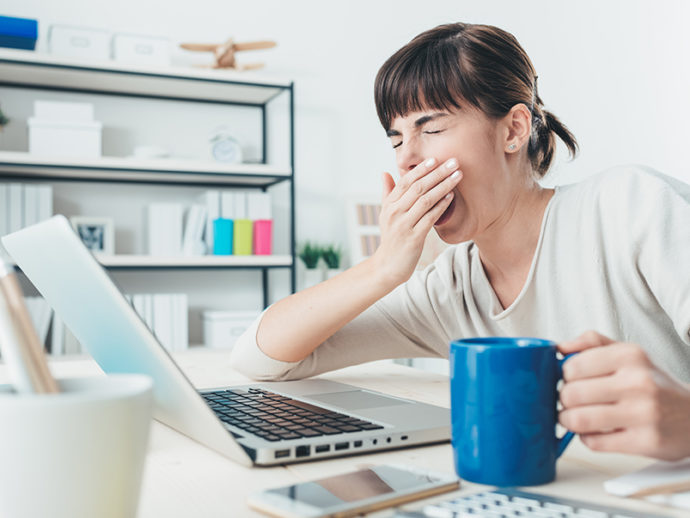
Staying up late to watch a favorite show. Getting up early to hit a coffee shop on the way to work. It’s a cycle many of us are familiar with, and it means few of us are getting the seven to nine hours of sleep that we need each night.
This comes at a steep cost.
“Poor sleep has been associated with increased levels of stress, diabetes, heart conditions, [high] blood pressure, attention lapses, [reduced] motivation and [lower] productivity,” says Sean Kerklaan, CEO of Fatigue Science, a company that has devised fatigue management technology that’s used by corporations, professional sports teams and military units.
Workplace disturbance
A recent study showed that 76 percent of US workers surveyed feel tired many days of the week, while 15 percent fall asleep during the day at least once per week.
“When people are feeling groggy, when they can’t get out of bed, they end up taking more sick days,” says naturopathic doctor Chris Habib. “They can’t function, so they find their capacity for work has decreased. They’re less productive. They’re quicker to anger, and they have a shorter fuse. They find their capacity for social interaction has decreased. As a result of all that, they’re more exhausted and more stressed, and it’s a cycle that feeds on itself negatively.”
Sleep and health
“I frequently see people whose lack of sleep is causing health issues and vice versa,” says Habib. “Sleep is such an important component of mental health. A lot of people who have insomnia end up suffering from depression or anxiety as a result … and a lot of people with anxiety will wake up in the middle of the night, and all they can think of is work.”
The good news is that improved sleep means enhanced health.
Strategies to improve your sleep
Practise sleep hygiene
This involves avoiding caffeine, nicotine and alcohol, especially in the evenings; ensuring that your bed is only used for sleeping or sex; getting physical activity during the day and not doing anything stressful in the bedroom, says Habib.
“It’s good to have a nighttime routine; make sure you wind down,” he says.
Avoid screen time before bed
Power down televisions, laptops, cellphones and other mobile devices at least half an hour before you go to sleep.
“There should be no electronic media in the bedroom,” says Atul Khullar, medical director of a sleep clinic. “The phone is the worst. People end up texting or using it as an alarm clock, but it’s very distracting. The light emitted from these devices can keep us awake.”
Don’t lie awake
“Stop watching the clock,” Khullar says. “If you’re awake, you should be getting up. Sit quietly somewhere else and do something very boring. Go back to bed when you feel tired.”
Rein in worries
If anxiety is preventing you from falling asleep or is waking you up in the middle of the night, Habib says approaches like meditation, deep breathing and mindfulness can help.






